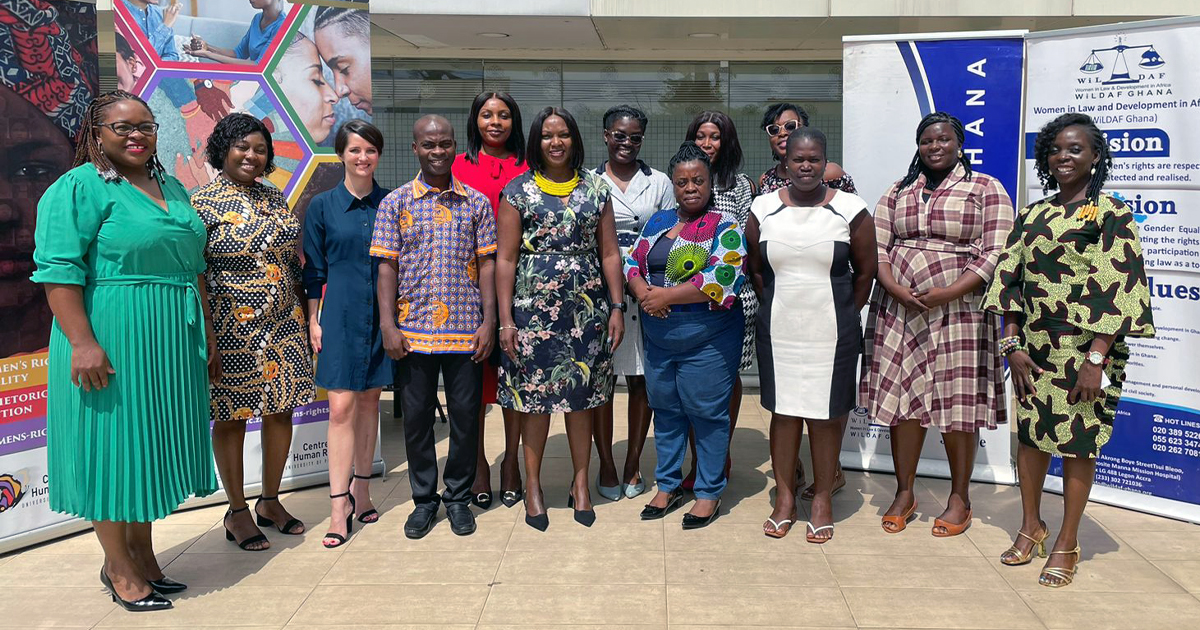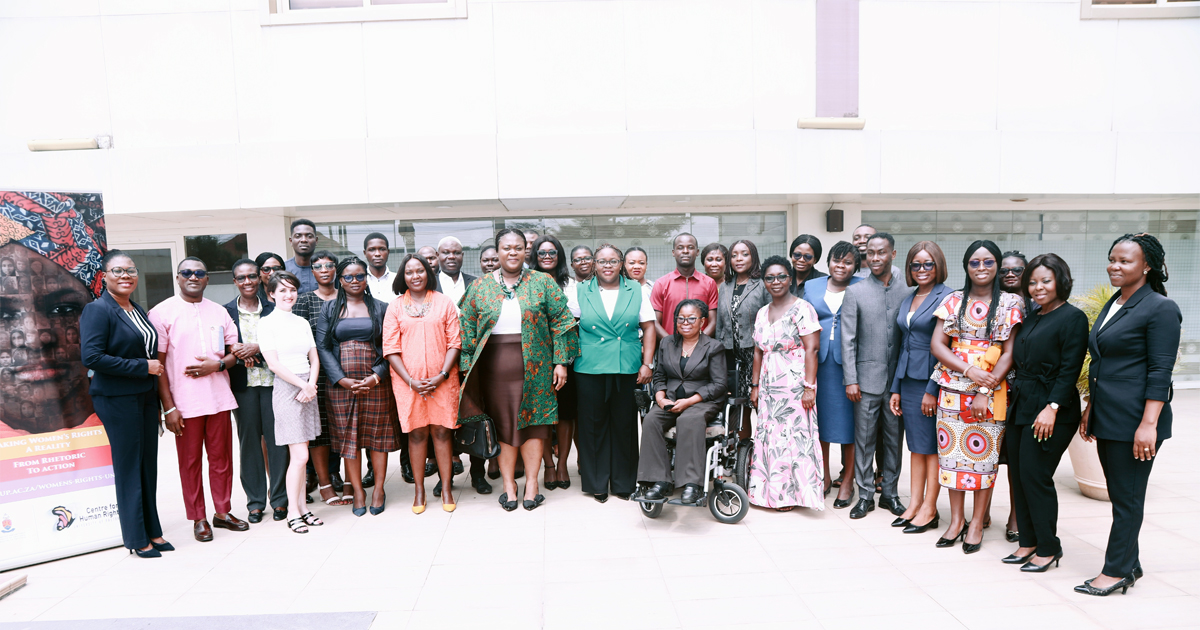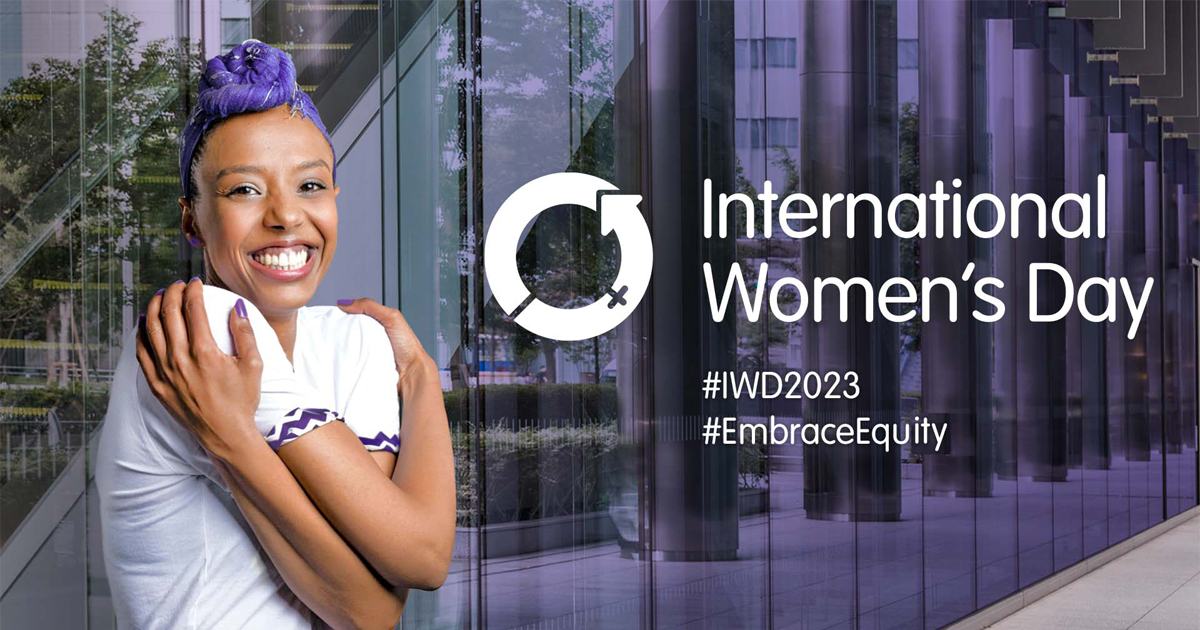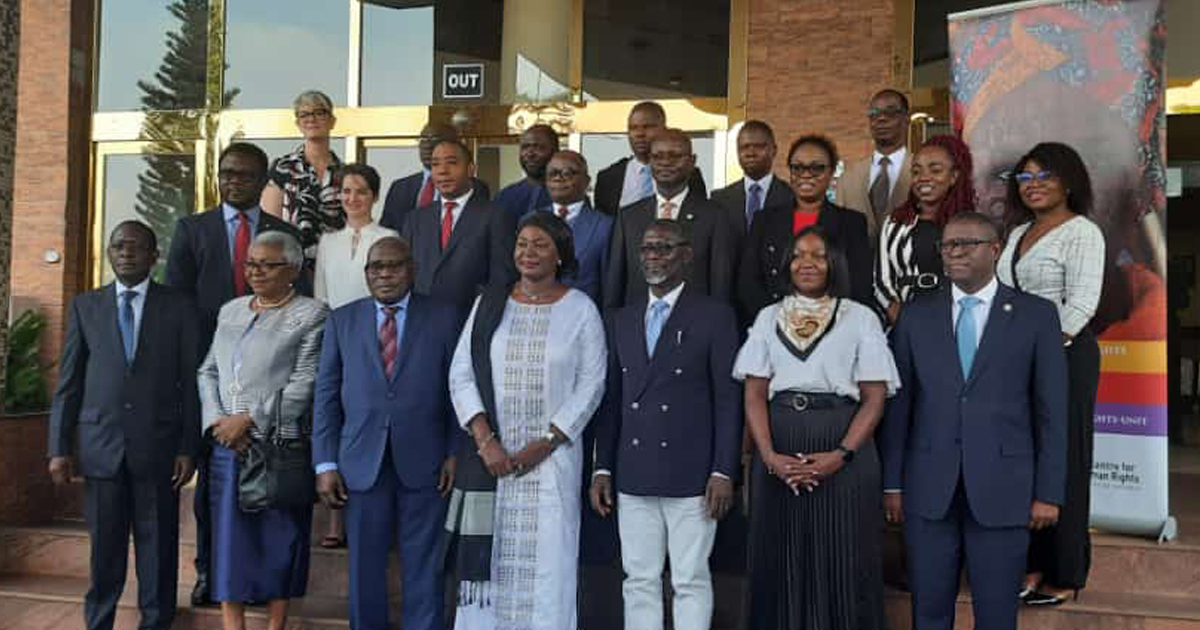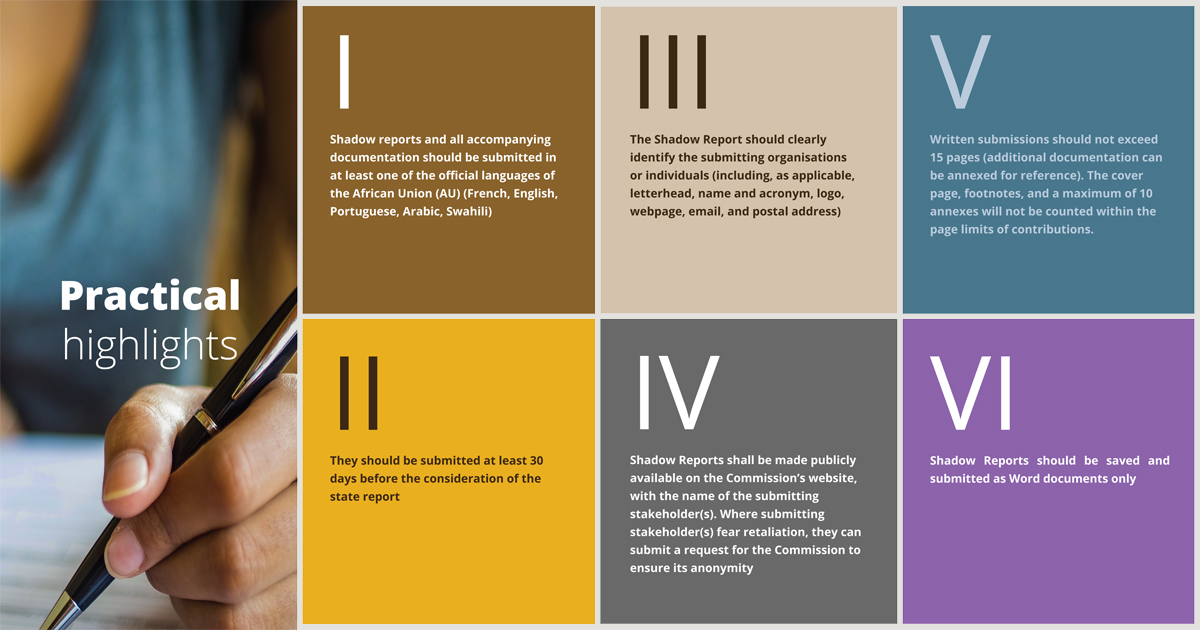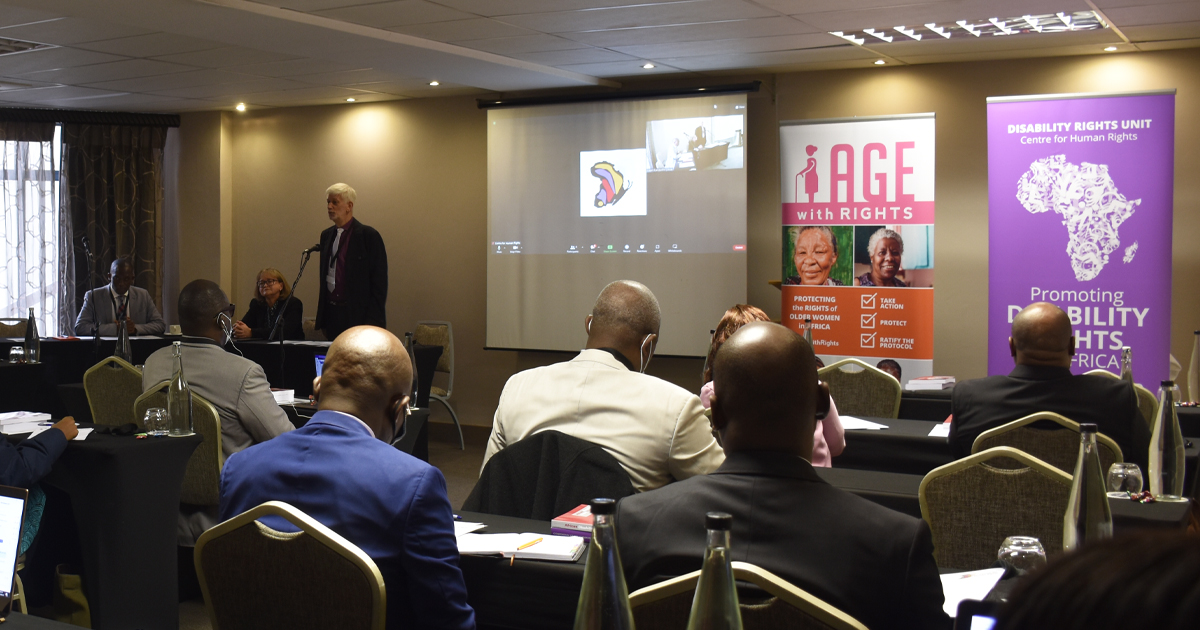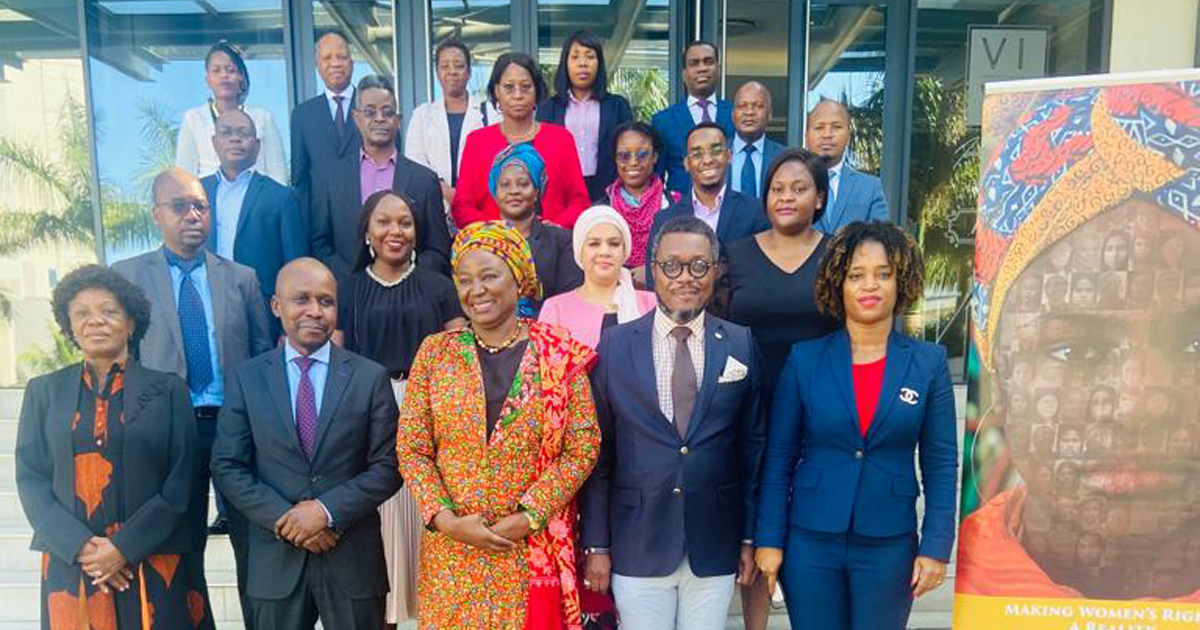- Details
‘Badudwan’ is a practice in Ghana where a man is given a cow in recognition of him have borne 10 children. In the process the woman who has been put under pressure to carry all 10 (or more) pregnancies is ignored. Organisations might be allowed into school to discuss sexuality education for adolescents but personal convictions of staff block the distribution of contraceptive products to the youth. These are only some of the issues that have come up in the discussions on sexual and reproductive health rights (SRHR) in Ghana during a training organised by the Women’s Rights Unit, Centre for Human Rights in collaboration with WiLDAF Ghana from 16-17 March 2023. The meeting is part of the project funded by the Swedish International Development Corporation (SIDA). The project is aimed at strengthening SRHR in Africa.
- Details
On 14 - 15 March 2023 in Accra, Ghana the Women’s Rights Unit met with Ghanaian government representatives and civil society organisations to facilitate a workshop on strengthening compliance with Ghana’s state reporting obligations under the African Charter on Human and Peoples’ Rights (African Charter) and the Protocol to the African Charter on Human and Peoples’ Rights on the Rights of Women in Africa (Maputo Protocol).
- Details
To celebrate International Women's Day (IWD) this year, the Centre for Human Rights, University of Pretoria, seeks to accredit the potential for women to benefit socially and economically from the digital revolution. Yet, there is also a chance that it will reinforce current patterns of gender inequity. Despite numerous substantial initiatives, there is still a sizable gender gap in the digital world, which prevents high-, low-, and middle-income countries from equally reaping the rewards of digital transformation.
- Details
On 29 and 30 November 2022 in Abuja, Nigeria the Centre for Human Rights Women’s Rights Unit held a joint jurisprudential colloquium for Commissioners of the African Commission on Human and Peoples’ Rights and Judges of the Economic Community of West African States Court of Justice (ECOWAS Court). Judge President Edward Amoako Asante of the ECOWAS Court and Commissioner Janet Sallah-Njie, Special Rapporteur on the Rights of Women in Africa of the African Commission on Human and Peoples’ Rights are among the eminent attendees. The purpose of the Judicial Colloquium was to sensitise the judicial and quasi-judicial officers on attaining substantive equality for women in Africa through a gender-sensitive approach to the application and interpretation of the Protocol to the African Charter on Human and Peoples’ Rights on Rights of Women in Africa (Maputo Protocol).
- Details
Shadow reporting
Member states are obligated to report to the African Commission every two years, in accordance with its guidelines, on measures they have taken to give effect to the provisions of the African Charter; and its Protocols, including the Protocol to the African Charter on the Rights of Women in Africa; the Protocol to the African Charter on the Rights of Older Persons in Africa, the Protocol to the African Charter on the Rights of Persons with Disabilities in Africa; the Protocol to the African Charter on the Rights of Citizens to Social Protection and Social Security; the African Union Convention for the Protection and Assistance of Internally Displaced Persons in Africa; and any other subsequent regional human rights treaties in respect of which the African Commission has the mandate to monitor state reporting.
- Details
The Centre for Human Rights, Faculty of Law, at the University of Pretoria (Centre for Human Rights), is extending an invitation to you to participate in a webinar launching a study on the impact of COVID-19 on older women in Southern Africa.
- Details
Every year, on August 9, South Africa country marks Women’s Day. The day is used to pay tribute to the more than 20 000 women who marched to the Union Buildings on 9 August 1956 in protest against the extension of Pass Laws to women, a system meant to subjugate women even further and reduce women to passive beings, at the mercy of men. In addition to celebrating the strength and resilience of South Africa women, the day brings attention to the issues that African women face then and now. These issues include gender-based violence (GBV), discrimination and harassment in different areas of life, unequal pay, lack of access to education and sexual and reproductive health services and in recent times the disproportionate impact of climate change.
- Details
On 23 June 2022, the Centre for Human Rights held a high-level meeting to encourage African Union (AU) member states to ratify three instruments. First, is the Protocol to the African Charter on Human and People’s Rights on the Rights of Older Persons in Africa (Older Persons Protocol), which was adopted by the AU in 2016. Second, the Protocol to the African Charter on Human and People’s Rights on the Rights of Persons with Disabilities in Africa (African Disability Protocol), adopted in 2018. Third, the Convention for the Protection and Assistance of Internally Displaced Persons in Africa (Kampala Convention) was adopted by the AU in 2009. The Older Persons Protocol and the African Disability Protocol are both not yet in force as they are yet to receive the 15 ratifications necessary for them to come into effect.
- Details
Of 55 member states of the African Union, only six have the Portuguese language as an official language. This presents challenges and opportunities for the African Commission on Human and Peoples’ Rights in its mandate to promote the respect for and monitor the implementation of human rights on the continent. The Centre for Human Rights (the Centre) in collaboration with the African Commission on Human and Peoples’ Rights (African Commission) are hosting a hybrid workshop with five PALOPs on using the state reporting process to monitor the implementation of the rights contained in the African Charter on Human and Peoples’ Rights (African Charter) and the Protocol to the African Charter on Human and Peoples’ Rights on the Rights of Women in Africa (Maputo Protocol).
- Details
The Centre for Human Rights (the Centre) is looking for experienced local researchers to conduct a review of discriminatory laws related to violence against women (VAW) in the following countries: Angola, Botswana, Gabonese Republic, Egypt, Tunisia, Algeria, Morocco, Sierra Leone, Mali and Cape Verde.

